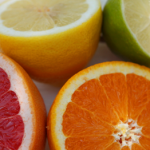Be up-to-date with your health
In today’s world of information overload we have messages coming at us from all angles on what is healthy, what is not, eat more of this, don’t eat that, eat only this and never that. Let’s face it, it’s confusing.
So, how do you pick out the up-to-date information that you need when it travels amongst loud, stylish, trendy fads?
Trendy and stylish
We are socialized to want to be trendy and stylish but sometimes the latest craze really isn’t what’s best for your long-term health.
When it comes to our diets do we want to avoid trendy and stylish? Merriam-Webster defines trendy as; up-to-date, faddish appeal or superficial. Stylish is defined as conforming to current fashion. These terms add to the confusion when it comes to health and food choices.
Up-to-date while avoiding fads
Can you be up-to-date and resist conforming to current fads or trends? Yes, I believe you can. Fads change, they die off and some of them literally die but I’m not naming any names here.
Trends are up-to-date but can also have faddish appeal or be superficial. Neither of which you want in your diet. The hard part is to figure out what’s a fad and what is up-to-date information.
My choice is to be up-to-date and current and you won’t find me conforming to current health fashions or fads. I’m neither trendy nor stylish with my food choices. When it comes to my health and my food choices, I make choices that are backed by solid research and come recommended by reputable sources.
I also choose what makes me and my body feel great. Something that I think we should all do more often.
What is solid research?
We often hear that research tells us something we should or should not be doing but how do you know if it was good research? I asked Mairlyn Smith, PHEc her thoughts on solid research and here is what she has to share with us.
“For a study to be credible I like research that is based on long term studies with large numbers of humans. I also want to know that a food has been shown, over a long term, to have had a positive effect which is why I have been fascinated as well as influenced by the foods and lifestyles of centenarians” says Mairlyn.
She went on to share that some of the Studies she follows are the Nurses Health Study, the Health Professional Study and the Nuns Study. “I like research that is cited in medical journals because I know these have been peer reviewed” states Mairlyn. “I follow Harvard, Mayo Clinic and reputable universities” she said.
When asked about small, short term studies Mairlyn’s immediate response was that “we owe it to our followers to do no harm. Reporting on small studies that are short term may end up years down the road as being erroneous (wrong or incorrect). I believe that ethically I owe my followers the truth not hype.”
It is clear to me now more than ever that long-term, large human sample size, published, peer reviewed research is the way to go but now who do I get it from?
Who is a reputable source?
Look for individuals that carry a professional designation such as Registered Dietitians (RD) and Professional Home Economists (PHEc). These professionals are required to take nutrition courses at a University level and are also required to take a certain amount of continuing education each year to maintain these designations.
You can also look for organizations that employ RD’s and PHEc’s. Organizations that are reputable sources should have reputable folks on staff. If you are not sure what the letters after someone’s name mean and how they got them, just ask. Everyone loves to talk about themselves and you can easily find out what you need to know.
Beyond the designation I look to individuals, like Mairlyn Smith PHEc, and organizations that all work from the same foundation. A foundation that they have built using Canada’s Food Guide for Healthy Living, peer reviewed research and positional statements and information from organizations like the Heart & Stroke Foundation as well as the Dietitians of Canada.
Canada’s Food Guide for Healthy Living
My family and friends know that I often source Canada’s Food Guide for Healthy Living. I believe that it is a great starting point for anyone that wants to get on track with healthy eating. It’s what I call my healthy eating foundation.
Ask yourself questions
It is not easy work filtering through the loud, stylish, trendy fads and that’s why we have experts to do the work for you. Sometimes they are not always available when you need them but you can ask yourself a few questions to get you going in the right direction.
When faced with a new, or a new to you, food trend, ask yourself: is this information coming from a reputable source and is it backed by solid research?
If the answer is no then it’s safe to carry on. If you are not sure then you need to press pause until you can get the answer.
If the answer is yes, then ask yourself how does this new information fit into or on top of my healthy eating foundation? What changes could I make and am I willing to make them?
Remember the choice is always yours and in the end you need that body to be feeling great!
Be Well…Jenn
***************************
Jennifer Dyck is a Winnipeg-based Professional Home Economist, mom of 2, avid baker and passionate about yoga. She works with the Manitoba Canola Growers in education and promotion and blogs for Eat Well, a blog dedicated to recipes and articles from experts to keep your mind, body and soul working at its best.
Updated October 2020







